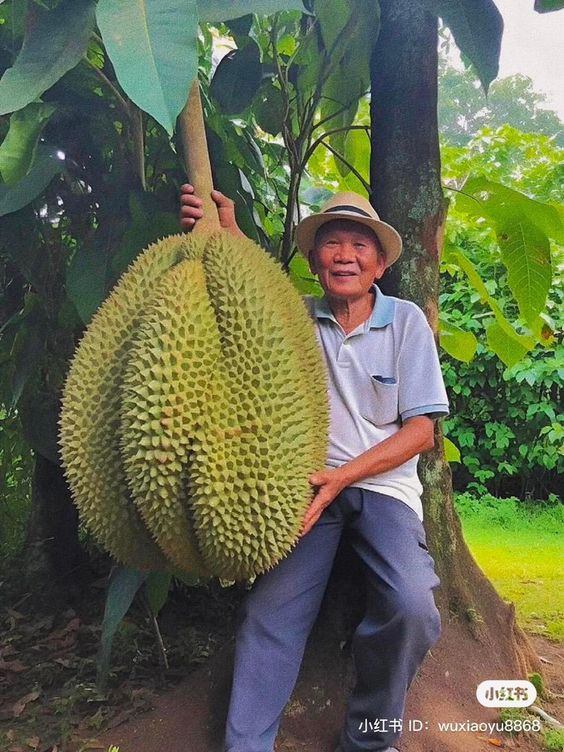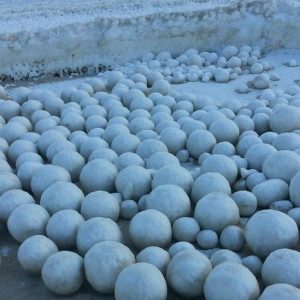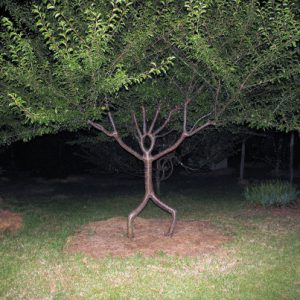Jackfruit trees, scientifically known as Artocarpus heterophyllus, are native to South and Southeast Asia, thriving in the warmth and humidity of these regions. The formation of jackfruits begins with the tree’s delicate flowers, which emerge from the trunk and branches. These blossoms are primarily pollinated by insects and sometimes even the wind.
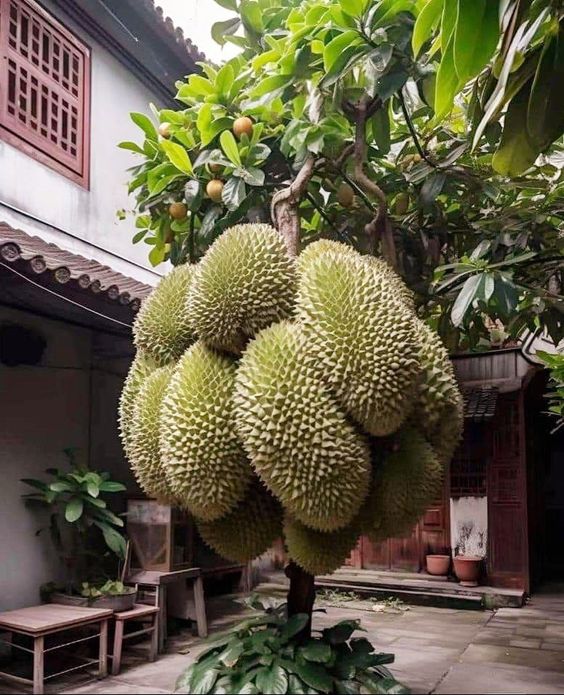
After successful pollination, the real magic begins. Jackfruit development is remarkable for its unusual appearance at every stage. The young jackfruit starts as a small, round, green orb, but its shape transforms as it grows. It elongates and takes on an irregular, asymmetrical form. Each fruit becomes a testament to the tree’s unique process of creation.
As the jackfruit matures, its surface becomes adorned with thorny, knobby protrusions. These oddities give the fruit its signature textured appearance, often resembling a cross between an overgrown green gourd and a prehistoric dinosaur’s hide. The tree’s adaptation of such an unusual texture can be seen as an evolutionary strategy to deter herbivores and protect its seeds.
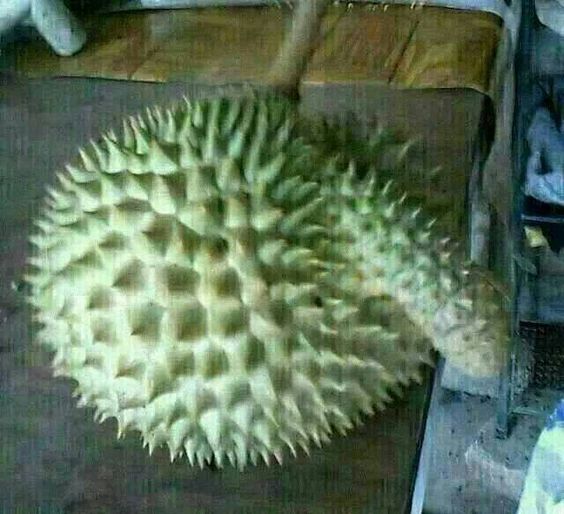
The jackfruit’s development continues with the fruit’s changing color, from deep green to a pale yellow or orange when ripe. This metamorphosis is a natural signal to animals and humans alike that the fruit is ready to be harvested and enjoyed.
The unique shapes of jackfruits are not only a testament to nature’s diversity but also an invitation to explore the wonders of tropical ecosystems. Beyond their peculiar appearances, jackfruits offer a versatile culinary canvas, known for their sweet, tropical flavor and meaty texture. From curries and desserts to jackfruit tacos and pulled “pork” sandwiches, this odd-shaped fruit has made its mark in global cuisine.
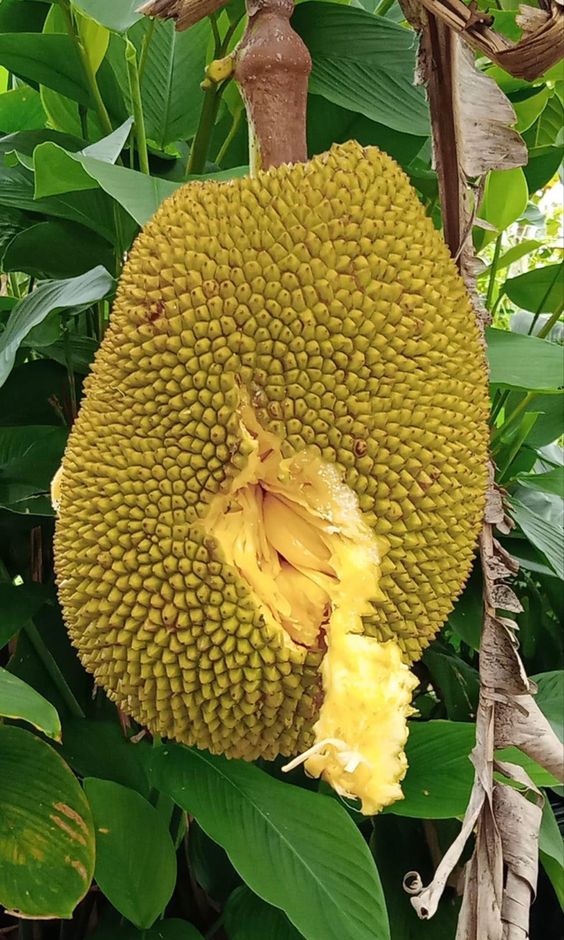
In conclusion, the formation of oddly shaped jackfruits is a captivating process rooted in nature’s brilliance. These quirky, thorny fruits are a testament to the diverse and remarkable world of tropical flora. Whether enjoyed fresh or incorporated into various dishes, the jackfruit’s unusual shapes and extraordinary journey from blossom to table make it a true wonder of the natural world.

